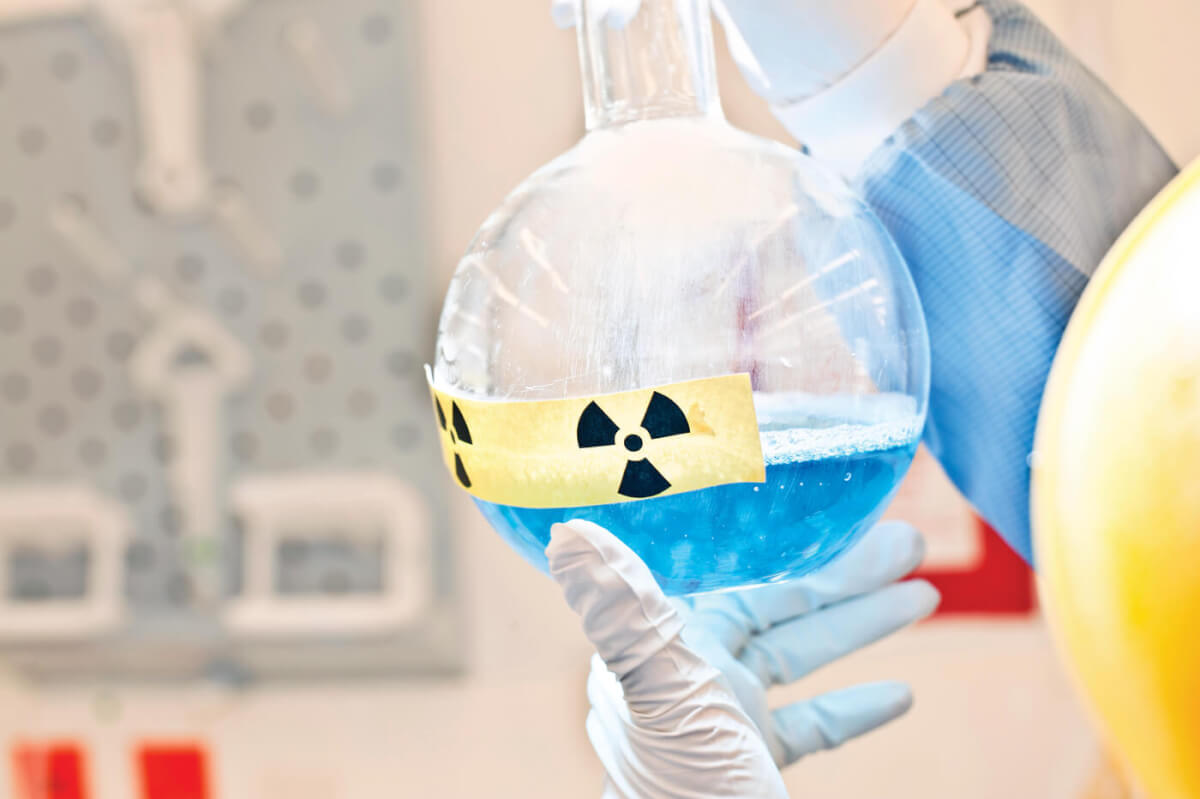If the U.S. came under a chemical weapons attack, would you have the slightest idea of what to do?
Unfortunately, the idea of this actually happening is not so “impossible” as it once seemed. Last fall, the discovery of Syria’s use of chemical weapons created an international crisis, with governments around the world condemning these dangerous toxins. In addition to a natural outcry against the use of these chemicals, many Americans also began to fear that such weapons could be used right here in the U.S.

Whether you think your area is very vulnerable to dangerous toxin exposure or you think the chance is low, you need to ask yourself a few questions just in case such a scenario occurred: How would you react if chemical weapons entered your airspace? Would you know they were there quickly enough to take action? And what actions would be necessary?
CHEMICAL AGENTS COULD BE DISPERSED
The reality, experts say, is that not all chemical weapons are the same, and you should know the differences between them.
“There are so many different types of chemical weapons, and the proper response depends on the chemical,” says Anne Marie Helmenstine, PhD, a scientific consultant who serves as About.com’s chemistry expert. “There are different routes of exposure and different mechanisms of action, so what protects you from one chemical may be completely ineffective against another.”
For instance, she says, some chemical weapons are illegal compounds that are left over or stolen from stockpiles. These would mainly include nerve agents, such as sarin, tabun, VX and soman.
“It’s actually quite unlikely a person would encounter these because they are illegal and therefore tracked,” she says. “More likely, a person could be exposed to a chemical agent that is either legal or else easy to make. Tear gas and crowd dispersal agents are legal. Chlorine and mustard gas are fairly easy to make.”
TREATMENTS DO EXIST
Because most nerve agents are odorless, invisible and tasteless, you may not know they’re in use until you’ve already been affected.
“They are active if inhaled, ingested or absorbed across the skin,” Helmenstine says. “You either die right away or else develop symptoms. The good news is, if you have symptoms, it’s possible to seek medical attention for a common antidote and usually make a full recovery. The trouble is, the initial symptoms may mimic the flu or an allergic reaction. By the time it progresses to the inability to breathe, it’s too late.”
Therefore, if you hear that a nerve agent has been used, don’t wait until your symptoms are severe before seeking medical attention—get to a hospital right away.
In the case of ricin exposure, you would experience flu-like symptoms. “Modern tests can confirm ricin exposure,” Helmenstine says. “The problem is, it’s unlikely you would know you were exposed. The usual tell-tale sign is to encounter a suspicious white powder, but there are other ways to be exposed.”
If you are facing exposure to chlorine or mustard gas, you might know they’re in the air due to the odor. “Chlorine and mustard gas are yellow-colored gases, heavier than air, with distinctive smells,” Helmenstine says. “Searing pain in the mucous membranes of the eyes, nose, mouth and lungs is the classic symptom.”
SEEK HIGH GROUND
In many cases, you may get a heads up about potential chemical weapon use by watching the news or listening to a radio alert.

“If you hear there may be chemical weapons in the area, the best course of action is to get far away,” Helmenstine says. “However, if emergency management officials tell you to stay in your home and close the doors/windows, then listen to that advice. Most weapons will react with air, settle out or disperse, so all you need to do is wait it out. Keep in mind, many agents are heavier than air, so if you are out in the open, seeking high ground is a good idea.”
IN CONCLUSION
There’s no foolproof way to save your life during a chemical weapons attack, but being prepared will absolutely give you an edge and help you survive.
You may want to stock up on gas masks to prepare for potential chemical attacks, but don’t invest your savings just yet, Helmenstine says. “Gas masks aren’t all that effective unless you’re in the military or otherwise have access to the special cartridges that would inactivate the toxins in the weapons,” she advises. “Breathing through a cloth probably is better than nothing, but the best protection is to avoid exposure.”
Editor’s note: A version of this article first appeared in the Spring 2014 print issue of American Survival Guide.



